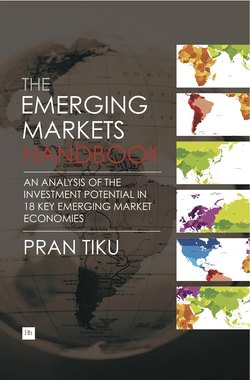Читать книгу The Emerging Markets Handbook - Pran Tiku - Страница 22
На сайте Литреса книга снята с продажи.
The great recession
ОглавлениеThis wave of economic growth and the stock market and real estate boom continued around most of the world (including the emerging countries) until late 2007. It all came crashing down in late 2008 and early 2009. The crash and the great recession that followed destroyed a large slice of wealth created during the boom years from 2003 to 2007. This recession created large tidal waves beyond the shores of America and Europe and in fact it hit the emerging markets even harder. Even though many of these emerging countries did not suffer economically or even record a recession, their stock markets lost substantial value.
However, stock markets also recovered faster in emerging markets. As an example, the stock markets in Brazil, India and China lost 41%, 52% and 65% respectively in 2008, and all of them gained over 80% in 2009. Russia was an outlier with a loss of 67% in 2008 and a gain of 121% in 2009.
Many people who had theorised that the emerging markets would continue to march to their own beat, unaffected by the developed markets, had egg on their faces. Despite good economic conditions and no recession, the shadow of the sluggish economies of the West (particularly in the US) loomed large over emerging markets. The theory of lack of correlation between developed world and emerging world (particularly in relation to stock markets), came under attack by investors.
If we move beyond the short-term performance of the stock markets, particularly at the time of global financial stress, there is a strong long-term case to be made for growth and opportunity in emerging markets. Long-term fundamentals of growth are in play for most of these countries – even though these will not be consistently reflected in the stock market gains.
The exhibit below presents a timeline of significant events in the recent history of emerging markets.
